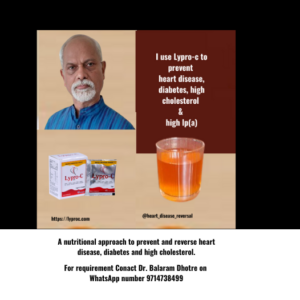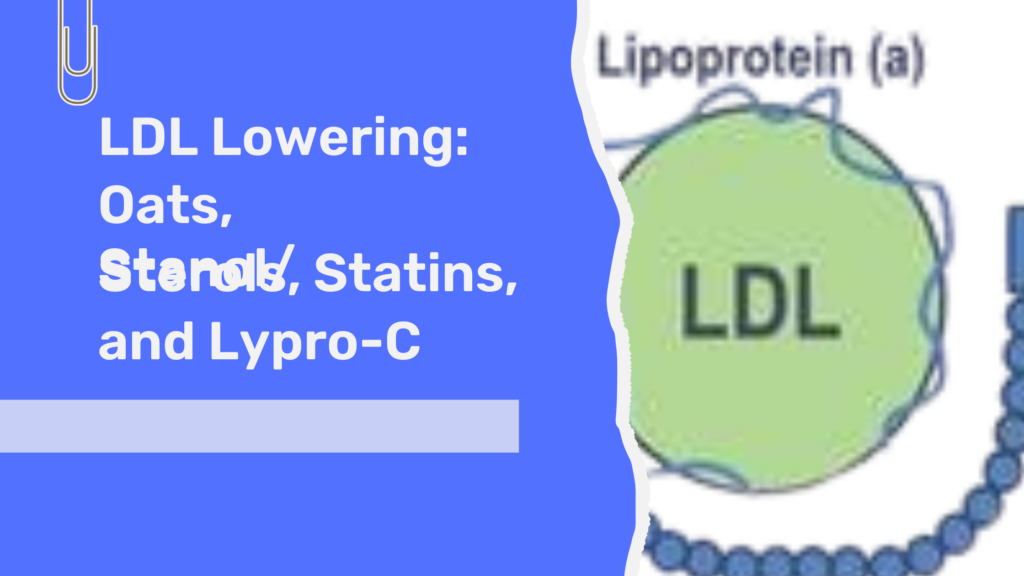Introduction
Managing high LDL cholesterol is a cornerstone of heart health, and various strategies exist, ranging from dietary changes to pharmaceutical interventions. In this comprehensive guide, we’ll explore the effectiveness of different LDL lowering methods, including the well-known benefits of oats and stanol/sterols, the power of statin medications, and a look at Lypro-C and its potential impact on reducing “bad” cholesterol. Understanding the nuances of each approach can empower you to make informed decisions about your cardiovascular well-being.
Table of Contents
Natural Approaches: Oats and Stanol/Sterols for LDL Reduction
For those seeking natural ways to support healthy cholesterol levels, oats and stanol/sterols often come into the conversation. Oats, rich in soluble fiber called beta-glucan, work by binding to bile acids in the gut, hindering their reabsorption and prompting the liver to use more cholesterol from the bloodstream. Consistent daily intake of sufficient beta-glucan (around 3-4 grams) typically yields a modest but beneficial LDL-lowering effect, generally in the range of 5-15%.
Similarly, plant stanols and sterols (phytosterols), found naturally in small amounts in foods like nuts, seeds, and vegetable oils, can also help reduce LDL cholesterol. They have a structure similar to cholesterol and compete for absorption in the intestines. Consuming around 2 grams of plant stanols and sterols daily, often through fortified foods, can contribute to a LDL lowering of approximately 7.5-12% as part of a heart-healthy diet.
The Role of Statins in Significant LDL Reduction
When more substantial LDL lowering is required, statin medications are often the first-line treatment prescribed by healthcare professionals. Statins work by inhibiting an enzyme in the liver that is crucial for cholesterol production. These prescription drugs can achieve significant reductions in LDL cholesterol, typically ranging from 20% to 50% or even higher, depending on the specific statin and the dosage. Their effectiveness makes them a cornerstone in managing high cholesterol and reducing the risk of cardiovascular events.
Exploring Lypro-C for LDL Reduction
Lypro-C is a Vitamin C, lysine, proline-based supplement. It repairs the arteries and removes lp(a) sticking to the arteries and lowers lpa levels from the bloodstream. Indirectly, it results in a significant reduction of approximately 44%. Vitamin C is the catalyst, and lysine and proline act as building blocks for collagen synthesis. This method of LDL lowering is superior to statins.
Conclusion: Choosing the Right Path for LDL Lowering
Ultimately, the most effective method for LDL lowering depends on individual circumstances, baseline cholesterol levels, overall health status, and risk factors for cardiovascular disease.
While natural approaches like incorporating oats and stanol/sterols into the diet offer valuable support, they may not be sufficient for everyone, especially those with significantly elevated LDL.
Statins remain a powerful tool for substantial LDL reduction under medical guidance.
The potential of Lypro-C for significant LDL lowering is via artery repair and collagen synthesis. This is a nutritional approach to lower cholesterol, prevent, and reverse heart disease.
keywords
LDL lowering, cholesterol, oats, beta glucan, stanol, sterols, statins, Lypro-C, heart health, nutrition, cardiovascular health, cholesterol management
====================================================================

========================================================================

